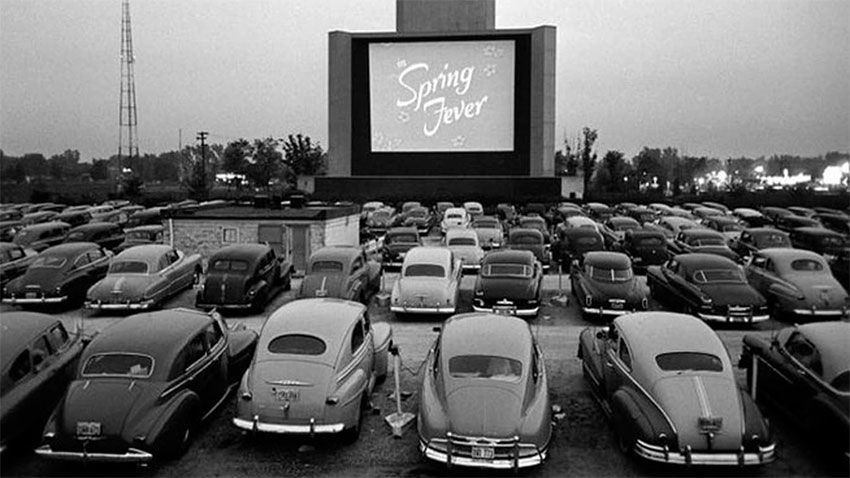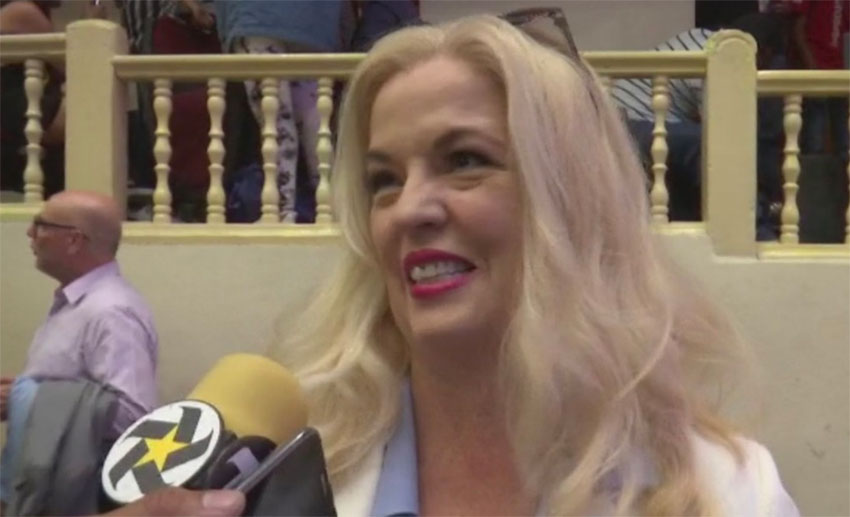The Guanajuato International Film Festival (GIFF) is braving the post-Covid future with a throwback to the past — drive-in theaters.
“We’re really open to new technologies and new ways of telling stories, as well as new stories and new storytellers,” says Sarah Hoch, founding director. “This year, we’re about new ways of doing the film festival.”
From September 18–27, the festival moves forward with a nostalgic blast from the past. Its 300+ short films, world premieres and documentaries will be shown at drive-ins and picnic grounds across Guanajuato state so that attendees can keep a healthy social distance from each other. In a year when many massive public events have been canceled altogether, the GIFF remains committed to keeping its doors open – for the fans, the local economy, and for the love of cinema.
You could say that the pandemic has made this local film festival think outside the box, but that would only be true if they had been inside the box to begin with. The GIFF began 23 years ago in the midst of a moment of crisis for the Mexican film industry: only a handful of films were being made by national directors and even fewer were seen by the public. There was a need for more support, both financially and socially and spaces for new talent to show off their work.
Guanajuato’s was the first film festival in Mexico to support alternative formats to 35mm. They were one of the first film festivals to make inclusion (especially of the LGBTQ community) a priority. And the GIFF was vital to the rebirth of the short film genre in Mexico – which had been slowly disappearing since the 1950s.

“There was such a need for a festival like ours, we weren’t institutionalized, but a non-profit. We were kind of mavericks, we broke all the rules, we attacked all the institutions, we made a lot of enemies but we’ve made a lot of breakthroughs,” laughs Hoch.
Breaking the rules included setting up screenings in some uncommon places – the outdoor steps of the Guanajuato University, graveyards, tunnels, plazas, gardens.
“If you can name it, we can set it up,” Hoch says, insisting that the GIFF team isn’t intimidated by the logistics of outfitting 22 screening sites as drive-ins or outdoor picnics. These sites will be set up in three cities hosting the festival this year – San Miguel de Allende, Guanajuato, and for the first time in the festival’s history, Irapuato.
The addition of this third city was a logical fit – the GIFF’s production arm has spent years working with Irapuato filmmakers and the city is wooing the festival by setting up a high-end drive-in of its own.
For each of these locations, the festival will apply the santitary restrictions that have been set for both restaurants and movie theaters by Mexican health officials. Folks will be on hand to clean bathrooms after each use, wipe down surfaces, ensure that staff and visitors are wearing masks and using hand sanitizer as well as keeping a safe distance from one another – picnic areas 2 meters apart and passageways between cars will make it possible to maintain healthy distances even on the way to the concession stand.
Each location will offer a menu of gourmet snacks or full meals and maybe even a few junk food options harkening back to the days of drive-in corn dogs and slurpees. LED screens and surround sound will ensure that movies can be shown all day without reduced visibility or sound quality.
The majority of the festival’s locations won’t be announced until August but there are rumors that the Rosewood Hotel in San Miguel de Allende is planning its very own vintage car drive-in with space (there may even be old-school clip-on car trays) and several other parking lots and outdoor spaces are already starting their transformation for the festival’s new format. Drive-ins and outdoor screenings will have space for 200 to 500 cars or individual groups. Additionally there will be showings in two traditional movie theaters, with the same hygiene standards in place.
In addition to screenings, there will be conferences, panel discussions, kids’ activities, and other events for regular Joes to mix and mingle with the people in the industry. Filmmakers from all over the country and beyond are gearing up to land this fall.
“Everyone we told we were doing drive-ins was like, ‘I’m Coming,’” says Hoch, “A lot of their films were accepted at major film festivals that then got canceled. They were opening films for film festivals that never happened, and they so want an audience … They are super psyched about these spaces. The response from the filmmakers has been overwhelmingly positive.”
Still not convinced about leaving your house to mingle with other movie-goers? In the tradition of innovation the GIFF has announced a virtual campus that will allow people to participate from the comfort of their own homes. This video-game-like experience will provide access to all the events, talks, conferences and classes offered by the GIFF 2020.
As one of the first international film festivals to have a large amount of their content online and with Covid making more and more of our social interactions virtual ones, a virtual campus seemed like the logical next step in expanding their reach.
But if you love movies and the experience of watching them in a crowd, the question must be asked: is this the new normal for film festivals?

“There was this big thing about putting your films online before Netflix really took off,” says Hoch, “but now with everybody stuck in their house, everything’s online. I think when producers were finally putting things online, some of these older, slow-moving festivals were like, OK, we’ll put something online.”
In fact, many of the GIFF’s filmmakers refused to give the festival the digital versions of their work at the beginning of the year, insisting they would wait for the fall festivals to reopen. But as the crisis dragged on, producers and filmmakers changed their minds, equipping the festival with a healthy online catalogue of this year’s films.
“Producers are changing the way they are releasing their films and they are changing the way people are going to see them. Festivals will become an important part of how people hear about these films because billion-dollar investments with toys at McDonald’s and huge billboards are going to be a thing of the past. It will make festivals even more important, especially festivals with strong social media and a strong presence online and who are comfortable with new technologies,” says Hoch.
“I think that for those of us that have been working in technology for a long time, we’re going to take a lot of things we learned this year and continue it. Our festival will have 40 to 50% of its content online as well and 100% of our competition will be online,” she says.
Keeping the festival alive also helps local businesses like hotels and restaurants that have been the bedrock of the festival.
“Our biggest sponsors are restaurants and hotels and the tourism industry in both cities. They have been with us for 23 years. They needed something to jumpstart tourism again and we wanted to be that event – that was super creative, and super fun, but safe,” says Hoch.
For movie-goers ready to venture out, the GIFF’s new format is a way to experience the festival while still maintaining safe distance and health standards. For some it will even be a nostalgic trip to simpler pre-Covid times when worldwide pandemics were only on the big screen, watched from the safety of your own front seat.
• For festival details, visit giff.mx.
Lydia Carey is a regular contributor to Mexico News Daily. She lives in Mexico City.
